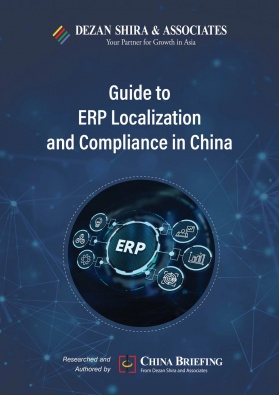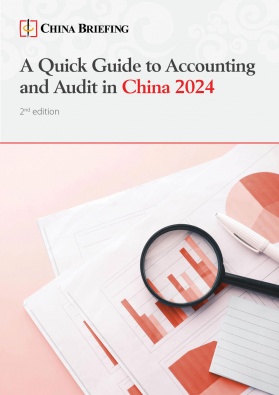China Trade Union Funds Explained
We introduce the China trade union funds system – examining the sources, regulations, and payment methods. Additionally, we explore the current state of trade unions in China, with specific considerations for foreign-owned enterprises.
In China, the concept of worker representation takes a distinct form. Trade unions, a cornerstone of the system, play a crucial role in mediating between employees and employers.
This article explains how China’s trade union funds work, exploring their sources, uses, and the implications for both workers and enterprises. We look at the current landscape of trade unions in China and discuss their impact on labor relation management in China.
Introduction to China’s trade union funds
Trade union establishment
According to the Trade Union Law of the People’s Republic of China (hereinafter, “Trade Union Law”), trade unions are defined as “mass organizations of the working class, led by the Communist Party of China (CPC), where workers voluntarily unite.” Participation in and formation of these unions are open to all workers, regardless of nationality, race, gender, occupation, religious belief, or educational background.
Trade union funds
In China, trade union funds are financial resources managed by trade unions to support workers’ rights and welfare. Enterprises, institutions, and government departments where trade unions are established must contribute a specified percentage of their workforce’s monthly payroll to these funds.
Companies can make accrued expenses to the total salary in accordance with the accounting system of enterprises. These funds play a crucial role in providing financial support for union activities and protecting workers’ interests in China.
Sources of trade union funds
Trade unions in China derive their funds from various channels, including:
- Membership dues collected from union members;
- Mandated allocation of 2 percent of gross monthly salary from enterprises or government departments with labor unions;
- Contributions from affiliated enterprises or institutions;
- Subsidies from the Chinese government; and
- Other sources of miscellaneous income.
Tax treatment of contributions to trade union fund by the employer
Labor union expenses, capped at 2 percent of gross salary, can be deducted before taxation with proper documentation. Gross salary refers to the actual wages paid to employees, excluding welfare expenses and insurance contributions.
The term “employees” covers both regular and non-regular salaried workers, including those directly contracted with enterprises through labor dispatching.
Payment methods of trade union funds by the employer
The payment of trade union funds follows different practices in different cities.
In some cities, the trade union fund is paid to higher level trade unions, which then is allocated to the grassroot trade union of the company:
- Companies with established trade union calculate and pay the full amount of trade union funds equal to 2 percent of the total wages and salaries of all employees to the higher-level trade union each month. Typically, the higher-level trade union transfers 60 percent of the amount collected to the grassroots trade union within the paying enterprise.
- For companies that have not established a trade union organization, they pay the union funds directly to the higher-level trade union (referred to as “union preparation funds”). In this case, the higher-level trade union won’t allocate the fund to the grassroot trade union.
In other cities, the trade union fund is paid to the grassroot trade union and higher-level union separately:
- Companies pay a portion (usually 40 percent) of the fund to the higher-level trade union according to local regulations.
- The remaining portion (usually 60 percent) is simultaneously allocated by the company to its local grassroots trade union. If no grassroots trade union exists, the funds are allocated to the respective unit’s trade union once it is established.
According to relevant regulations, companies should allocate the trade union fund to the trade union on a monthly basis, and the union should then pass it up through the specified levels. Companies that haven’t established trade unions shall still pay required contribution to the trade union at a higher level as the preparatory fund for the establishment of trade unions.
Currently, in most provinces, whether or not a trade union organization has been established, trade union funds are generally collected by the tax authorities. Additionally, some provinces have specific regulations: for newly established enterprises, some places require payment to start after six months, while others may begin after 12 months. The exact requirements should be based on local guidelines.
How are grassroots trade union funds utilized?
Funds allocated to grassroots trade unions serve various purposes, including enterprise publicity, cultural and artistic activities, sports events, member hardship support, collective welfare initiatives for employees, training for union cadres, administrative expenses, and salaries for union personnel.
Establishment of trade unions in China
What are the legal requirements for establishing trade unions in China?
China’s Constitution and several labor laws mandate the establishment of trade unions in enterprises. These laws guarantee workers’ right to association and participation in trade unions. Enterprises are required to consult trade unions on major issues and follow specific procedures when making decisions that affect workers’ rights, such as layoffs.
How do trade unions operate in China?
Trade unions established within a company must be registered with the All-China Federation for Trade Unions (ACFTU), a governmental body accountable to the Central Committee of the CPC.
The legislative framework governing China’s trade unions include:
- Trade Union Law
- The Charter of China Trade Unions
- Provisions on Collective Contracts
- Foreign Investment Law
- Labor Contract Law
According to the Trade Union Law, the primary function of trade union committees is to negotiate with employers on behalf of employees and sign collective contracts to protect their rights and interests.
Trade unions in China finance themselves through various means, including membership fees, employer contributions, affiliate institution earnings, and government subsidies.
Independent unions are not permitted by Chinese law.
Who is covered by trade unions?
In principle, employees in any Chinese company can join or establish a trade union, as per the Trade Union Law, which allows workers from diverse backgrounds to participate in and organize labor unions. Employers are prohibited from obstructing employees from unionizing.
However, trade unions are predominantly formed by blue-collar workers in traditional industries like construction and manufacturing.
Recent amendments to the Trade Union Law have extended union coverage to gig workers. The emergence of the gig economy, facilitated by digital platforms, has led to a growing number of individuals in low-paid service roles, such as couriers and taxi drivers. Despite facing challenging working conditions, low wages, and uncertain employment statuses (many gig workers are not formal employees and thus lack certain benefits like social security), they have been unable to join or establish trade unions.
The legal amendments reinforce gig workers’ rights to unionize, stating that trade unions should adapt to evolving company structures, workforce compositions, labor relations, and employment models, ensuring laborers’ rights to unionize in accordance with the law.
What are the key steps involved in establishing a trade union?
Establishing a trade union typically involves four steps:
- Forming a preparatory group to oversee the process.
- Developing plans for the establishment process.
- Designing the operational procedures for the trade union.
- Creating a contingency plan to address any unforeseen issues.
A critical step is electing the trade union chair democratically following established procedures.
Foreign-owned enterprises establishing trade unions in China
What are the major concerns from foreign enterprises when establishing trade unions?
There are three main concerns from overseas enterprises:
- Misconceptions about trade unions: Overseas management may be worried about disruptions caused by trade union activities, such as strikes or negotiations.
- Balancing interests: Local managers struggle to balance the demands of headquarters, local governments, and employee needs.
What are the potential impacts on management of establishing a trade union?
Establishing a trade union can lead to increased costs for the enterprise, including:
- One-time fees associated with setting up the union.
- Additional personnel costs for full-time or part-time union chairs and committees.
There might also be intangible costs such as:
- Increased scrutiny and potential public exposure for not following labor regulations.
- Challenges in managing communication and consultation processes with the trade union.
Outlook
The landscape of trade unions in China presents a complex picture marked by evolving challenges. Despite legislative amendments aimed at addressing labor issues, questions linger regarding the effectiveness of these measures, particularly in the context of emerging gig economies.
While the formation of tech company unions hints at a shifting dynamic, their impact remains ambiguous, with concerns over their ability to represent diverse worker interests persisting. Moreover, the slow implementation of changes, such as addressing grueling work schedules, underscores the ongoing struggle for improved labor conditions.
Looking ahead, the outlook for trade unions in China depends on multiple factors. On one hand, there exists potential for unions to play a pivotal role in advancing workers’ rights, especially in addressing the evolving nature of employment in the digital age. On the other hand, challenges such as inefficiencies, corporate resistance, and varying interpretations of labor laws continue to impede progress.
To truly realize the transformative potential of trade unions, concerted efforts from all stakeholders – including the government, employers, and workers themselves – are imperative. Clearer guidance, robust enforcement mechanisms, and genuine dialogue are essential for fostering a climate where trade unions can effectively advocate for and protect the rights of all workers in China. Only through sustained collaboration and proactive measures can the promise of fair and equitable labor practices be realized in the years to come.
About Us
China Briefing is one of five regional Asia Briefing publications, supported by Dezan Shira & Associates. For a complimentary subscription to China Briefing’s content products, please click here.
Dezan Shira & Associates assists foreign investors into China and has done so since 1992 through offices in Beijing, Tianjin, Dalian, Qingdao, Shanghai, Hangzhou, Ningbo, Suzhou, Guangzhou, Dongguan, Haikou, Zhongshan, Shenzhen, and Hong Kong. We also have offices in Vietnam, Indonesia, Singapore, United States, Germany, Italy, India, and Dubai (UAE) and partner firms assisting foreign investors in The Philippines, Malaysia, Thailand, Bangladesh, and Australia. For assistance in China, please contact the firm at china@dezshira.com or visit our website at www.dezshira.com.
- Previous Article China Fully Allows Visa-Free Entry for Foreign Tourist Groups on Cruise Ships
- Next Article An Introduction to Doing Business in Hong Kong 2024








